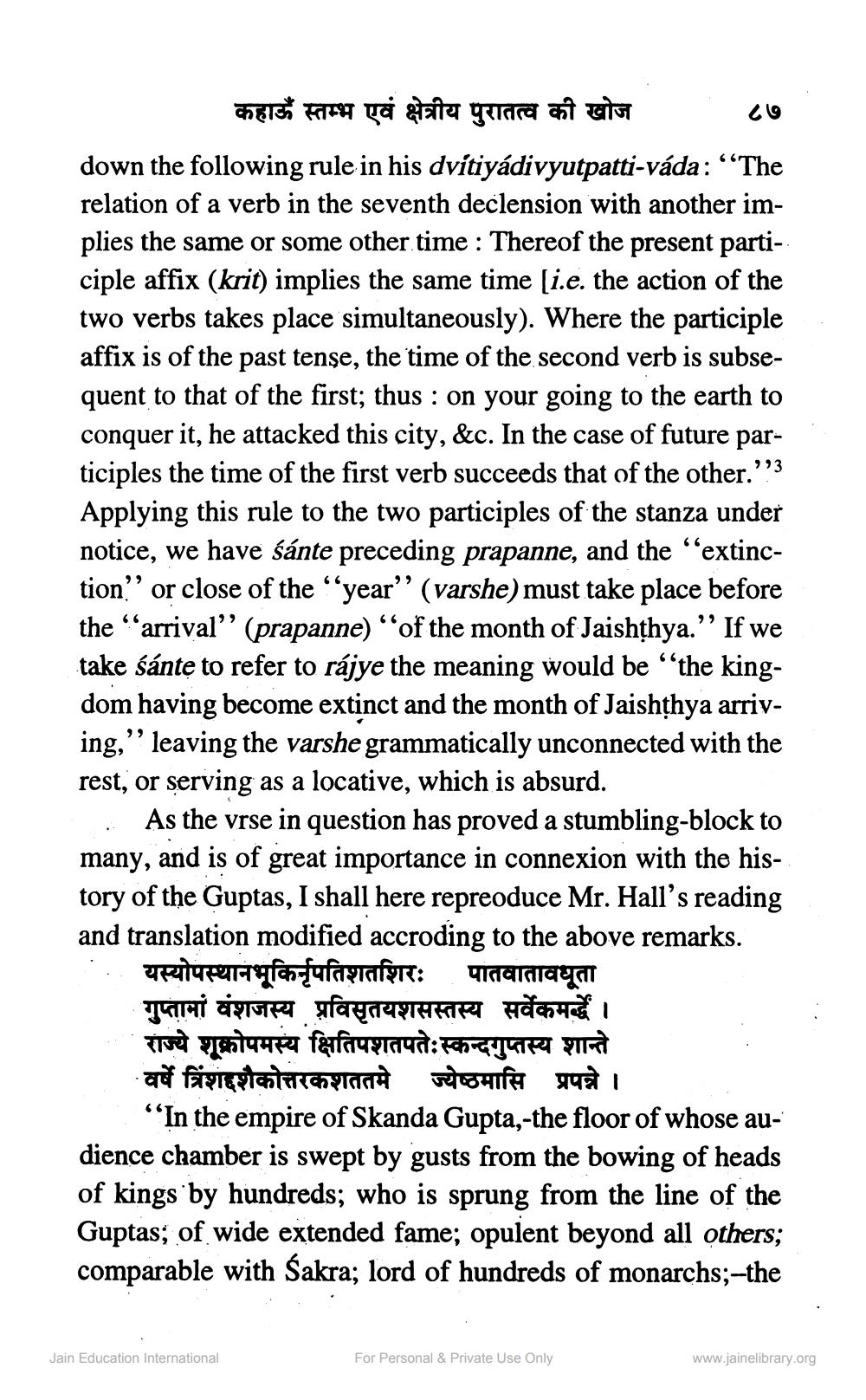________________
कहाॐ स्तम्भ एवं क्षेत्रीय पुरातत्व की खोज
down the following rule in his dvitiyádivyutpatti-váda: “The relation of a verb in the seventh declension with another implies the same or some other time: Thereof the present participle affix (krit) implies the same time [i.e. the action of the two verbs takes place simultaneously). Where the participle affix is of the past tense, the time of the second verb is subsequent to that of the first; thus: on your going to the earth to conquer it, he attacked this city, &c. In the case of future participles the time of the first verb succeeds that of the other."3 Applying this rule to the two participles of the stanza under notice, we have śánte preceding prapanne, and the "extinction" or close of the "year" (varshe) must take place before the "arrival" (prapanne) "of the month of Jaishthya." If we take sánte to refer to rajye the meaning would be "the kingdom having become extinct and the month of Jaishthya arriving," leaving the varshe grammatically unconnected with the rest, or serving as a locative, which is absurd.
As the vrse in question has proved a stumbling-block to many, and is of great importance in connexion with the history of the Guptas, I shall here repreoduce Mr. Hall's reading and translation modified accroding to the above remarks. Trenuren-rafa-fufagiafor: पातवातावधूता
गुप्तानां वंशजस्य प्रविसृतयशसस्तस्य सर्वेकमर्द्धे । राज्ये शूक्रोपमस्य क्षितिपतपतेः स्कन्दगुप्तस्य शान्ते · वर्षे त्रिंशद्दशैकोत्तरकशततमे ज्येष्ठमासि
प्रपन्ने ।
८७
"In the empire of Skanda Gupta,-the floor of whose audience chamber is swept by gusts from the bowing of heads of kings by hundreds; who is sprung from the line of the Guptas; of wide extended fame; opulent beyond all others; comparable with Sakra; lord of hundreds of monarchs;-the
Jain Education International
For Personal & Private Use Only
www.jainelibrary.org




